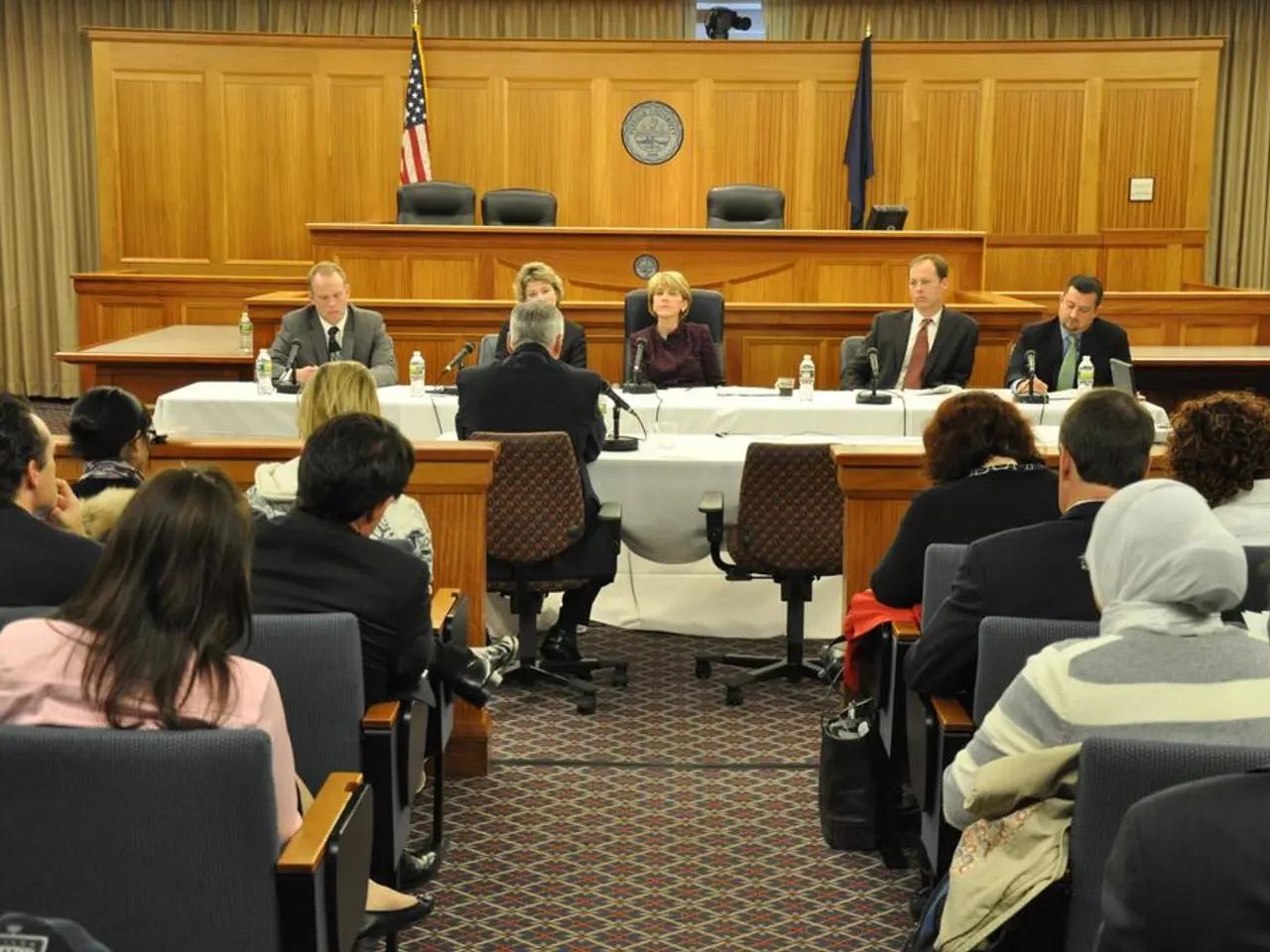Impacted Nations From Recent Trump Tariffs
The trade landscape is set to change significantly, with President Donald Trump announcing new tariffs on various countries that will affect global trade partners. Starting August 7, these tariffs will be imposed on a variety of imported goods, including automobiles and agricultural products.
The tariffs will be highest since 1933, a time when steep tariffs worsened the Great Depression. For countries with a trade surplus with the U.S., a 10% tariff will be imposed on imported goods. Countries with a trade deficit, such as China, Mexico, and the European Union, will face a 15% tariff. Some specific countries, like Brazil, may face tariffs as high as 50%.
Canada, another trading partner, will be exempt from the new tariffs. It's unclear how Brazil, with a potential tariff as high as 50%, will be affected.
The tariffs are expected to have significant implications for global trade. The imposition of tariffs on $360 billion of Chinese goods and China's retaliatory tariffs on U.S. exports have already caused widespread supply chain interruptions, forcing businesses to alter sourcing and manufacturing strategies. This reshuffling has led to shifts in trade patterns globally, especially affecting manufacturing hubs.
The tariffs will also have multifaceted impacts on emerging markets. Countries like Vietnam, India, and Mexico initially benefited from increased foreign direct investment (FDI) as companies sought alternatives to China. However, these gains were short-lived, with markets such as Vietnam later facing risks of overcapacity amid weakening demand for electronics and machinery linked to U.S. supply chains. Equity markets in commodity-exporting emerging nations like Brazil and South Africa underperformed due to stagnant global demand for raw materials.
U.S. steel and aluminum tariffs have distorted commodity prices, while retaliatory tariffs from China and the EU have exacerbated market disruptions. For instance, China's tariffs on U.S. agricultural products caused a roughly 30% drop in U.S. soybean exports, indirectly impacting commodity producers in Argentina and Brazil who relied on Chinese demand.
The tariffs will also have sector-specific outcomes. In negotiations with Japan, the U.S. achieved broader market access for American vehicles and rice. Japan offered tariff "relief" with a fixed 15% tariff rate on exports of vehicles to the U.S., lower than previously threatened hikes. Japanese investment commitments totaling $550 billion were also part of the post-tariff negotiations, focusing on sectors tied to national security like semiconductors and steel.
The tariffs will increase import duties paid by U.S. consumers and businesses, effectively transferring wealth from the private sector to the government but also damping the positive effects of other fiscal policies. The tariffs have contributed to elevated deficits and delayed interest rate normalization by the Federal Reserve due to increased economic uncertainty and inflationary pressures.
In summary, Trump's tariff policies have caused significant strain on global trade relationships, disrupted established supply chains, led to retaliatory responses, and created volatility particularly in emerging markets and commodity sectors. While some partners have benefited from redirected investment flows, the overall effect has contributed to global growth headwinds and market underperformance in critical regions.
References:
[1] "Trump's Trade War: How Tariffs Affect Global Markets." Investopedia, 24 July 2018, https://www.investopedia.com/terms/t/trumpstradewar.asp
[2] "U.S.-Japan Trade Agreement." U.S. Trade Representative, 15 January 2020, https://ustr.gov/trade-agreements/free-trade-agreements/japan
[3] "Trump's Trade Wars and the Federal Reserve." The Wall Street Journal, 18 July 2018, https://www.wsj.com/articles/trumps-trade-wars-and-the-federal-reserve-1532154400
- The new tariffs on imported goods, as part of President Trump's policy-and-legislation, are expected to have sector-specific outcomes, such as broader market access for American vehicles and rice in negotiations with Japan.
- The tariffs, coupled with retaliatory measures, have contributed to multifaceted impacts on emerging markets, with equities in commodity-exporting countries like Brazil and South Africa underperforming due to stagnant general-news demand for raw materials.








